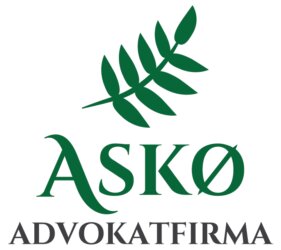Best Child Abuse Lawyers in Norway
Share your needs with us, get contacted by law firms.
Free. Takes 2 min.
Free Guide to Hiring a Family Lawyer
Or refine your search by selecting a city:
List of the best lawyers in Norway
About Child Abuse Law in Norway
Child abuse is a grave violation of a child's rights and is taken very seriously in Norway. The country has stringent laws and a robust system to protect children from abuse, neglect, and exploitation. Child welfare services actively intervene when concerns are raised about a child's safety or well-being. Norwegian law defines child abuse not only as physical and sexual abuse but also includes emotional abuse and neglect. The focus is on ensuring the safety and developmental needs of the child are met, and all stakeholders, including parents and caregivers, are held accountable for the child's welfare.
Why You May Need a Lawyer
There are several situations where individuals may need legal help in matters of child abuse in Norway:
- Accusation of Abuse: If you are accused of child abuse, having a lawyer can help you navigate the legal process and ensure your rights are protected.
- Reporting Abuse: If you suspect a child is being abused, a lawyer can guide you on how to report it and what to expect during investigations.
- Child Protection Services Intervention: When families are involved with child protection services, legal advice can help understand and manage the implications.
- Custody or Care Disputes: Legal representation can be crucial in custody cases where allegations of abuse may influence the outcome.
- Victim Advocacy: Legal advocates can help victims access necessary resources and support services and seek compensation or justice.
Local Laws Overview
Norwegian laws are explicit about safeguarding children's rights. Key aspects of these laws include:
- Criminal Code: The Norwegian Penal Code criminalizes various forms of child abuse, including physical, sexual, and psychological abuse.
- Child Welfare Act: This act focuses on protective and preventative measures to ensure the child's safety and development.
- Mandatory Reporting: Certain professionals are legally required to report suspicions of child abuse, ensuring early intervention.
- Legal Protections: Victims of abuse are entitled to protection orders and other legal mechanisms to ensure their safety.
- Family Law: Encompasses custody and visitation rights, emphasizing the child's best interests, especially in abuse-related cases.
Frequently Asked Questions
What constitutes child abuse under Norwegian law?
Child abuse in Norway includes physical, sexual, and psychological harm, as well as neglect that jeopardizes a child's health or development.
How are child abuse cases reported in Norway?
Anyone can report suspected child abuse to the local Child Welfare Services. Mandatory reporters, like teachers and healthcare professionals, have a legal obligation to report any suspicions.
What is the role of Child Welfare Services?
Child Welfare Services investigate reports of abuse and provide protection and support for the child, which might include removing the child from harmful situations.
Can parents accused of abuse access legal aid?
Yes, individuals accused of child abuse have the right to legal aid, ensuring they receive fair representation and guidance during legal proceedings.
Are there penalties for failing to report suspected child abuse?
Professionals obliged to report suspicions of abuse face legal repercussions if they neglect this duty, highlighting the importance of their role in child protection.
What should I do if I suspect a child is being abused?
Report the suspicion to the local Child Welfare Services immediately. You may also contact law enforcement if the child is in immediate danger.
How are child victims supported during investigations?
Children are supported with the help of social services, child psychologists, and legal guardians throughout the investigative and judicial processes.
What legal protections are available for child abuse victims?
Victims can obtain protection orders and other legal measures to prevent further harm, and they are entitled to comprehensive support and compensation claims.
Can abuse allegations impact custody decisions?
Yes, allegations of abuse are taken very seriously, and courts prioritize the child's safety and welfare in custody decisions.
What organizations can help abuse victims in Norway?
Several non-governmental organizations and helplines provide support, including crisis counseling and legal assistance, to abuse victims and their families.
Additional Resources
There are numerous resources available for individuals seeking information or assistance regarding child abuse in Norway:
- Child Welfare Services: Offers protection and intervention services for children at risk.
- The Police: Can be contacted for immediate protection and to investigate criminal activity related to abuse.
- Barneombudet (Children's Ombudsman): Advocates for children's rights and provides information on legal protections.
- Barnevernet: The Norwegian Child Welfare Services, providing assistance and interventions.
- NGOs and support lines: Various organizations and hotlines offer support services, including Red Cross, “Mental Helse” Helpline, and “Alarmtelefonen for Barn og Unge.”
Next Steps
If you require legal assistance regarding child abuse in Norway, consider the following steps:
- Consult a Lawyer: Reach out to a lawyer specialized in child welfare or family law to discuss your situation and understand your legal rights.
- Contact Child Welfare Services: If immediate intervention is required, contact your local Child Welfare Services.
- Gather Documentation: Collect any evidence or documentation related to the case, including medical reports, records of communication, or witness statements.
- Explore Legal Aid: Investigate eligibility for legal aid if financial constraints hinder access to legal assistance.
- Seek Support: Engage with support organizations to access counseling and advocacy services for both the child and the family involved.
Lawzana helps you find the best lawyers and law firms in Norway through a curated and pre-screened list of qualified legal professionals. Our platform offers rankings and detailed profiles of attorneys and law firms, allowing you to compare based on practice areas, including Child Abuse, experience, and client feedback.
Each profile includes a description of the firm's areas of practice, client reviews, team members and partners, year of establishment, spoken languages, office locations, contact information, social media presence, and any published articles or resources. Most firms on our platform speak English and are experienced in both local and international legal matters.
Get a quote from top-rated law firms in Norway — quickly, securely, and without unnecessary hassle.
Disclaimer:
The information provided on this page is for general informational purposes only and does not constitute legal advice. While we strive to ensure the accuracy and relevance of the content, legal information may change over time, and interpretations of the law can vary. You should always consult with a qualified legal professional for advice specific to your situation.
We disclaim all liability for actions taken or not taken based on the content of this page. If you believe any information is incorrect or outdated, please contact us, and we will review and update it where appropriate.
Browse child abuse law firms by city in Norway
Refine your search by selecting a city.














